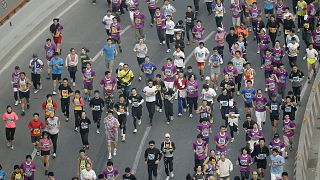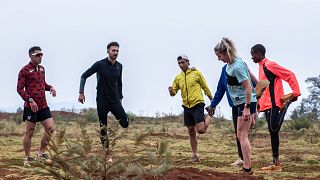World Health Organization
A new study has found that nearly one-third (31%) of adults worldwide did not meet the recommended levels of physical activity in 2022.
This puts them at greater risk of cardiovascular diseases such as heart attacks and strokes, type 2 diabetes, dementia, and some cancers.
It also has a negative impact on mental health and wellbeing.
In addition, the study by the World Health Organization together with academic colleagues, found that levels of inactivity continue to rise.
The authors say the findings show a worrying trend of adults becoming less physically active, with this trend increasing by about 5 percentage points between 2010 and 2022.
If this continues, countries will not meet the global target to reduce physical inactivity by 15 per cent by 2030.
"We must renew our commitment to increasing levels of physical activity and prioritizing bold action, including strengthened policies and increased funding, to reverse this worrying trend,” says WHO Director-General Dr Tedros Adhanom Ghebreyesus.
People are least active in the eastern Mediterranean region and South-East Asia, with levels of physical inactivity in these both regions at 40 per cent.
In contrast people are much more active in other regions, with levels of inactivity in the Western Pacific region (28%), European region (25%) and African region (16%).
Disparities also remain between gender and age, with women and people over 60 generally less physically active.
The WHO recommends that adults have 150 minutes of moderate-intensity, or 75 minutes of vigorous-intensity physical activity, or equivalent, per week.
On a positive note, almost half of the world’s countries have made some improvements in reducing physical inactivity over the past decade.
And 22 countries may reach the global target of reducing inactivity by 15 per cent by 2030, if their efforts in reversing the trend continues at the same pace.
The WHO is calling on countries to strengthen policy implementation to promote and enable physical activity through grassroots and community sport and active recreation and transport (walking, cycling and use of public transport), among other measures.













Go to video
Immunization at risk: Global health leaders urge action amid rising disease outbreaks
Go to video
Nigeria's market doctors bring healthcare directly to traders
01:27
Philippines sees 73% surge in dengue cases this quarter
01:54
Uganda: the infiltration of plastics into agricultural fields and food raise concern
00:47
Malaria confirmed as cause of deadly outbreak in DRC
01:36
Pope Francis leaves hospital after five weeks of treatment for pneumonia